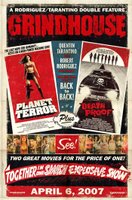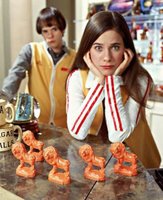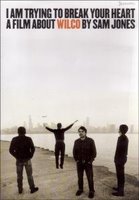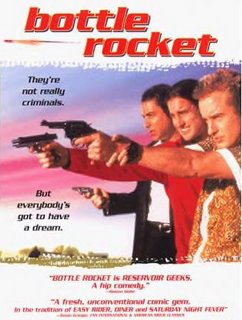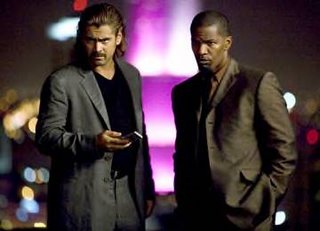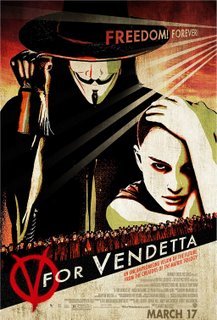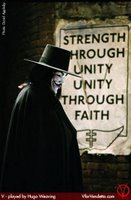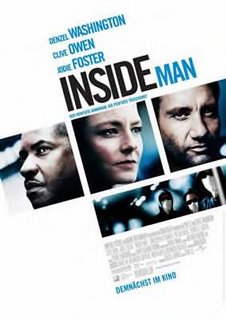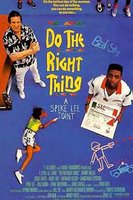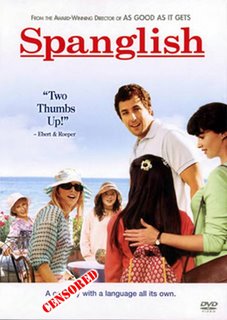TIFF: She, A Chinese
This is another installment in the long delayed series of reviews I had planned for the films I saw at the Toronto International Film Festival in September, 2009. I hope to write several more of these in a much more timely manner than I have so far. But I make no promises. Alas, life is busy and writing this stuff doesn't pay.
 The second day of the festival began with Xiaolu Guo's She, A Chinese, which is based on Guo's own novel. Guo introduced the film as a coming-of-age film, or a film about youth. She asked, "What is coming of age?" In our globalized world, it is likely that question is becoming more difficult to answer. How does a young individual discover who they are in a world that has become more accessible, both through access to transportation, as well as through technology (the internet, film, literature, etc.), which, in a way, makes the world much larger. Today's youth perhaps feel even smaller, in a world that appears much bigger. Of course, our modern youth do not really have any other time to compare their time to, so how aware of this changed world are they? Nevertheless, their methods of navigating through the 21st century are different than those of previous generations.
The second day of the festival began with Xiaolu Guo's She, A Chinese, which is based on Guo's own novel. Guo introduced the film as a coming-of-age film, or a film about youth. She asked, "What is coming of age?" In our globalized world, it is likely that question is becoming more difficult to answer. How does a young individual discover who they are in a world that has become more accessible, both through access to transportation, as well as through technology (the internet, film, literature, etc.), which, in a way, makes the world much larger. Today's youth perhaps feel even smaller, in a world that appears much bigger. Of course, our modern youth do not really have any other time to compare their time to, so how aware of this changed world are they? Nevertheless, their methods of navigating through the 21st century are different than those of previous generations. Connected to this question of youth, is Guo's assertion that the film is not about national identity. To this I then wonder, why is the film titled She, A Chinese. This title suggests questions and/or themes of nationality, be they on national identity, multiculturalism and other cultural studies, as well as issues of gender. The film follows Li Mei (Huang Lu), who is born in a small Chinese village and eventually leaves for the big city, then on to London, England. It is a global journey where we initially want to think about the film as being only about a Chinese girl; but it eschews the still too common Western approach, which shows China through the lens of Western Orientalism: China as the foreign and exotic. It becomes more a study of displacement and wandering, where both China and England can seem both foreign and familiar. Guo herself was born in a small Chinese village, but has lived in London for years now - she is of mixed culture and heritage; an example of the multicultural existence familiar to an ever-growing number of people. Guo, aware of how many Western and Chinese films alike have portrayed China through this Oriental lens, tries to focus on individuals and cross national barriers, creating a multi-national image of the world.
Connected to this question of youth, is Guo's assertion that the film is not about national identity. To this I then wonder, why is the film titled She, A Chinese. This title suggests questions and/or themes of nationality, be they on national identity, multiculturalism and other cultural studies, as well as issues of gender. The film follows Li Mei (Huang Lu), who is born in a small Chinese village and eventually leaves for the big city, then on to London, England. It is a global journey where we initially want to think about the film as being only about a Chinese girl; but it eschews the still too common Western approach, which shows China through the lens of Western Orientalism: China as the foreign and exotic. It becomes more a study of displacement and wandering, where both China and England can seem both foreign and familiar. Guo herself was born in a small Chinese village, but has lived in London for years now - she is of mixed culture and heritage; an example of the multicultural existence familiar to an ever-growing number of people. Guo, aware of how many Western and Chinese films alike have portrayed China through this Oriental lens, tries to focus on individuals and cross national barriers, creating a multi-national image of the world.National identity might not be at the root of the film, but it is still a part of the film and a subject worth examining. The film presents three different cultures through its principle characters: Li Mei and Spikey (China), Mr. Hunt (England), and Rachid (India). The film does a pretty good job to present these characters as individuals rather than cultural stereotypes, while showing how some of their cultural differences create tensions between them.
Even more interesting to me than the cultural issues are the gender issues within the film. Li Mei's track record with men throughout the film is hardly stellar; every man she has a relationship with takes advantage of her, and proves unreliable, leaving her alone to fend for herself. After being sexually assaulted by a truck driver in her home town, Li Mei heads for the city, begins helping and working in a brothel, and eventually becomes the girlfriend to Spikey (Wei Yi Bo), a criminal thug. Ironically, Spikey seems to be the nicest man to Li Mei, though he tries to pay her after having sex with her (perhaps a misguided act of sincerity on this bumbling criminal's part). But Spikey's machismo, gangster lifestyle is hardly a safe, dependable one; his demise leaves Li Mei on her own again, though - thanks to Spikey's criminal activities - financially set.
With Spikey's money she travels to England and falls in with the elderly widower Mr. Hunt (Geoffrey Hutchings). This seemingly kind old man helps Li Mei for a while, but eventually his own attraction to her pretty, youthful body becomes problematic. Mr. Hunt displays a rather Oriental tension of attraction and repulsion to the beautiful, young foreigner. Here both sexual and cultural tensions drive the two apart, for they can neither satisfy each other sexually, nor fully understand each other culturally. As is true of all the relationships in the film, there is a general failure to really communicate; most of the time the relationships are sexual, and if a sexual relationship is all there is, then the failure of that relationship is seemingly guaranteed.
Li Mei's Indian boyfriend, Rachid (Chris Ryman), also takes sexual advantage of her, through buying her clothes he thinks make her look sexy, to just pressuring her into sex. After using her for a while Rachid abandons her, claiming to be going back to India. This is likely motivate by the news that Li Mei is pregnant. This storyline becomes a somewhat conventional statement of men's failure to commit to a relationship, choosing instead to simply use women for sex and then dump them when the men no longer have a convenient use for those women.
This abuse of women by men seems a more common theme of the film than the cultural themes, showing how men's mistreatment of women to not be nationally or culturally exclusive. Men just mistreat women. While Li Mei is rather resourceful and finds a way of surviving, she is also rather ignorant and irresponsible, often expecting those men to provide her with the material pleasures she wants. She is often selfish, assuming that she can use men to get the things that she wants. The abuse between the sexes is less than commendable and in the end all the characters seem to hardly have fulfilling lives. The motives of these characters, influenced by the ever-more material world and belief in self-centered preservation and immediate pleasure leaves everyone lacking.

Labels: Chinese Cinema, Critical Studies, Directors, Film, Reviews, TIFF






